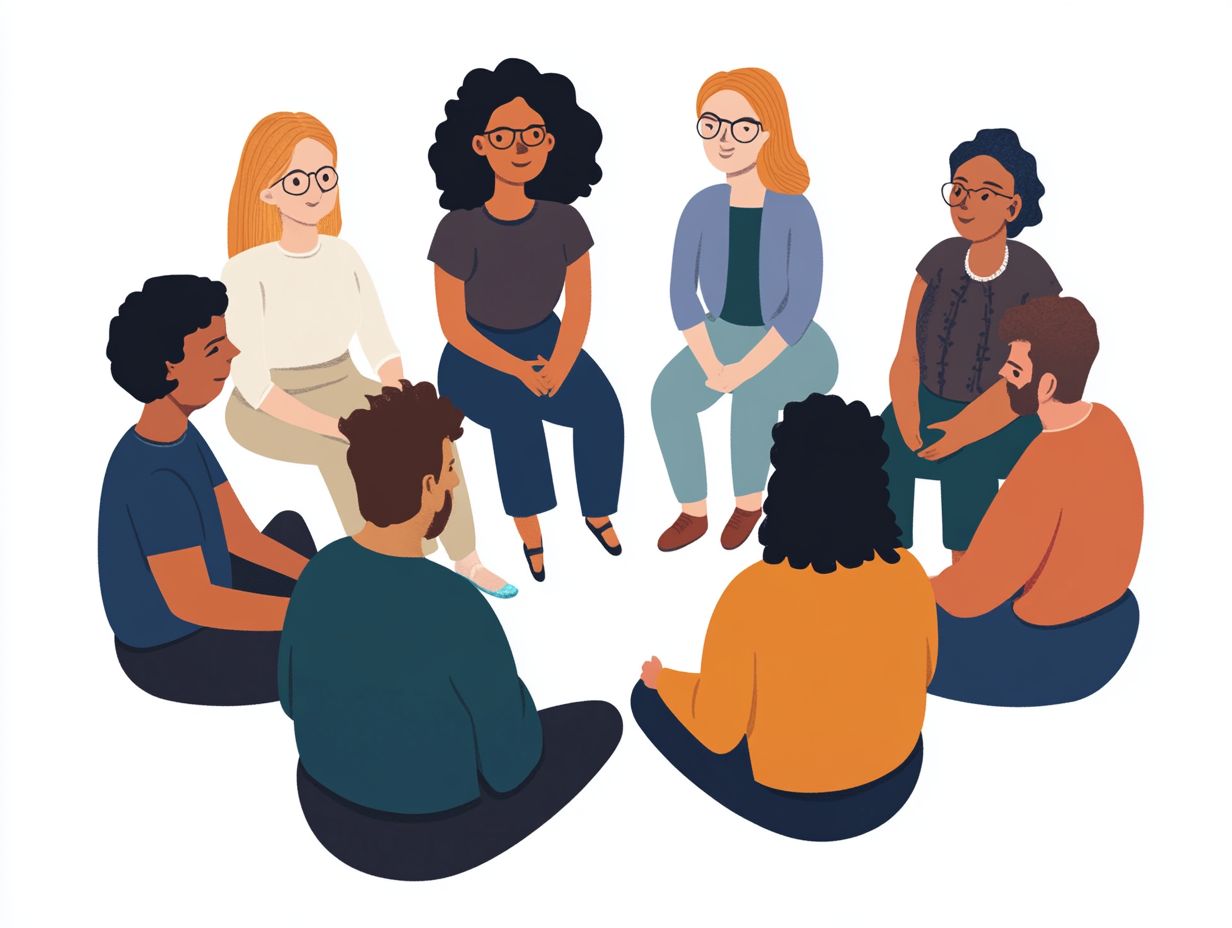What is the Role of Empathy in Motivation?
Empathy is essential when it comes to motivation, significantly impacting both your personal drive and the dynamics within your team.
Grasping how empathy influences your motivations can lead to transformative changes in both your workplace and personal relationships. This article delves into the definitions of empathy and motivation, exploring their intricate connections while showcasing the profound effects empathy can exert in professional environments.
From nurturing a culture of understanding to boosting self-motivation and collaboration, you’ll discover actionable strategies to cultivate empathy and harness its motivational power.
Contents
- Key Takeaways:
- Why Empathy is Key to Unlocking Motivation!
- The Link Between Empathy and Motivation
- Empathy in the Workplace
- Creating a Culture of Empathy
- Benefits of Empathy in the Workplace
- Ways to Increase Empathy in Individuals
- Empathy and Self-Motivation
- Empathy and Team Motivation
- Frequently Asked Questions
Key Takeaways:

- Empathy is the ability to understand and share the feelings of others. It plays a crucial role in motivation by fostering connection, understanding, and support.
- Empathy drives motivation by creating a sense of belonging and purpose. It helps individuals and teams feel valued, heard, and motivated to work towards common goals.
- A culture of empathy in the workplace leads to increased productivity, creativity, and employee satisfaction. Practicing active listening and perspective-taking are key ways to cultivate empathy in individuals and teams.
Why Empathy is Key to Unlocking Motivation!
Empathy is vital for grasping the complexities of motivation. It involves understanding someone s thoughts and feeling what someone else is experiencing, both of which cultivate a richer emotional intelligence essential for personal and professional development.
By recognizing and genuinely connecting with the feelings and perspectives of others, you can enhance your ability to motivate yourself and those in your circle. This creates a nurturing environment that encourages collaboration and boosts relational satisfaction.
Understanding empathy in relation to motivation serves as a solid foundation for exploring how these concepts intertwine and shape behavior.
Defining Empathy and Motivation
Empathy can be understood as your ability to grasp and share the feelings of others, while motivation embodies the reasons or desires that propel you to act or achieve your goals.
These two concepts intertwine beautifully to create a foundation for compassionate interactions. Cognitive empathy allows you to understand someone s thoughts, while emotional empathy connects you through shared feelings. Together, they cultivate an environment where understanding leads to meaningful action.
When you nurture these empathetic skills, you often find yourself motivated to assist those in need. This transformation of compassion into tangible, action-oriented behaviors not only benefits those around you but also enriches your own life in profound ways.
The Link Between Empathy and Motivation
The intricate connection between empathy and motivation unveils how your understanding of emotions, combined with accurate feelings of others, can profoundly influence your motivations. This, in turn, fosters enhanced prosocial behavior and cultivates richer interpersonal relationships.
How Empathy Drives Motivation
Empathy fuels your motivation by enhancing your emotional management and deepening your connections with others through compassionate behavior.
When you tap into empathy, it naturally heightens your awareness of the emotions and challenges that others face, igniting a genuine desire to offer your support. This emotional bond often motivates you to take action, inspiring you to engage in positive social interactions and contribute to your community.
This process not only helps you regulate your own emotions but also allows you to better understand the feelings of those around you. By responding with compassion, you not only strengthen your relationships but also cultivate a sense of purpose, propelling you further in your pursuits and nurturing a healthier emotional landscape.
Empathy in the Workplace

Empathy serves as a transformative force in the workplace, elevating employee mental health, cultivating relational satisfaction, and nurturing effective communication skills vital for a truly collaborative environment.
By prioritizing empathy, you not only enhance the well-being of your team but also create a culture where collaboration thrives and meaningful connections flourish.
Are you ready to embrace empathy and transform your motivation today?
Creating a Culture of Empathy
Creating a culture of empathy in your workplace starts with implementing training programs designed to enhance understanding feelings. These programs equip everyone, including social care professionals, with the skills needed to navigate interpersonal interactions with finesse.
By fostering an environment that encourages open communication, you significantly elevate team dynamics and enhance overall job satisfaction. Your training initiatives should focus not only on honing individual emotional skills but also on cultivating a collective mindset that values understanding and support.
Incorporating role-playing exercises and scenario-based learning enriches empathy training, allowing employees to step into their colleagues’ shoes and truly reflect on their perspectives. It’s essential for leaders to model empathetic behavior and consistently reinforce these values, paving the way for lasting change in workplace culture.
This approach boosts collaboration and reduces conflict, creating a compassionate workforce ready to excel.
Benefits of Empathy in the Workplace
The benefits of fostering empathy in your workplace are extensive. You can expect enhanced employee satisfaction, improved collaboration, and increased productivity, all contributing to a thriving organizational culture.
When you create an environment where individuals feel understood and valued, they re more inclined to communicate openly, strengthening relationships among colleagues. This supportive atmosphere encourages the sharing of innovative ideas and diverse problem-solving approaches, ultimately driving your business toward success.
Empathy also plays a crucial role in conflict resolution. Team members become better equipped to navigate various perspectives. As trust and mutual respect develop, employees are motivated to collaborate effectively, resulting in higher performance and accountability.
Organizations that prioritize empathetic leadership not only attract top talent but also foster a loyal workforce committed to the company s vision.
Ways to Increase Empathy in Individuals
Want to be more empathetic? Try techniques like active listening and seeing things from others’ perspectives. These approaches enhance your emotional regulation and deepen your understanding of others, allowing you to connect on a more meaningful level.
Practicing Active Listening
Practicing active listening is an essential skill to cultivate empathy. This technique involves fully engaging with the speaker, which enhances your emotional understanding and elevates your overall communication skills.
Mastering this requires setting aside your own thoughts and distractions, focusing entirely on the feelings and perspectives expressed by the other person. Adopting a non-judgmental stance and fostering an open dialogue creates an atmosphere of trust and respect. This level of engagement paves the way for deeper connections and greater compassion, enriching your relationships both personally and professionally.
By honing your active listening skills, you enhance your communication abilities and contribute to a culture of understanding in all your interactions.
Encouraging Perspective-Taking

Encouraging perspective-taking is an excellent way to cultivate empathy, promoting cognitive empathy while enhancing your emotional intelligence and interpersonal sensitivity.
This practice allows you to step outside your own experiences, gaining a deeper understanding of the feelings and thoughts of others. By doing so, you foster richer connections in both personal and professional relationships. Techniques such as active listening, engaging in role-playing exercises, and exploring diverse viewpoints greatly support your development in this area.
When you learn to appreciate different perspectives, you enhance your emotional awareness and contribute to creating a more inclusive environment that values empathy.
This ability to connect emotionally is vital for effective communication and conflict resolution, leading to healthier interactions and improved social dynamics in your life.
Empathy and Self-Motivation
Empathy plays a crucial role in enhancing your self-motivation by aiding in emotional management. It offers valuable insights through tools like self-therapy apps, which effectively reduce the mental effort tied to emotional regulation.
By harnessing empathy, you can navigate your feelings more adeptly, paving the way for greater motivation and personal growth.
How Empathy Can Help with Self-Motivation
Empathy has the remarkable power to enhance your self-motivation by fostering emotional understanding and encouraging prosocial behavior. This ultimately reinforces your self-regard and intrinsic drive.
When you tap into your capacity for empathy, you gain valuable insights into your own emotions and forge deeper connections with the feelings of others. This heightened emotional awareness can lead to actions that benefit your community. It creates a cycle of altruism that reinforces your sense of purpose.
When you engage in prosocial behaviors, like volunteering or providing support to those in need, you experience a boost in self-esteem and satisfaction. This further fuels your motivation to contribute positively to society. This dynamic interplay between empathy and self-motivation shows how emotional intelligence can boost your personal growth.
Empathy and Team Motivation
Empathy plays a crucial role in motivating your team. By fostering collaboration and enhancing relational satisfaction, empathy elevates communication skills. This ultimately cultivates a cohesive and productive team environment.
When you show empathy, you strengthen bonds among team members and create an atmosphere where everyone feels valued and understood. This, in turn, drives performance and collective success.
Building Empathy in Teams
You can build empathy in your team with engaging training programs that enhance communication skills and emotional understanding, fostering a more cohesive dynamic.
By incorporating role-playing exercises and scenario-based discussions, these sessions not only heighten awareness of diverse perspectives but also encourage you and your team members to engage in supportive interactions. Understanding and managing emotions plays an essential role in this transformative process.
When your team embraces these strategies, you strengthen interpersonal relationships and cultivate an environment where everyone feels valued and heard.
This proactive approach significantly reduces conflicts and enhances collaboration. It ultimately leads to a more productive working atmosphere that aligns seamlessly with your organizational goals.
Collaboration and Motivation

Collaboration flourishes through empathy, a powerful motivator that enhances team dynamics and strengthens relationships among members, including social care professionals.
When you actively practice empathy within your team, you cultivate an environment where everyone feels valued and understood. This emotional intelligence paves the way for open communication and allows team members to voice their ideas and concerns without hesitation.
By recognizing and appreciating one another s perspectives, your group fosters trust and cooperation.
This nurturing atmosphere boosts overall morale and elevates productivity, as motivated individuals are more inclined to invest their best efforts toward shared objectives.
In the end, a motivated team driven by empathy can navigate challenges with greater efficiency. This paves the way for successful outcomes in their projects.
Frequently Asked Questions
What is the Role of Empathy in Motivation?
Empathy is essential for motivation because it helps us connect with others’ emotions and experiences. This creates a sense of connection and can inspire individuals to take action or make changes in their lives.
How does Empathy Impact Motivation?
Empathy can significantly impact motivation by fostering understanding and connection with others. This can lead to increased motivation to help and support others, as well as to take action towards personal goals or growth.
Start implementing these empathy strategies today to unlock your team’s full potential!
Can Empathy be Taught or Developed?
Yes, empathy can be taught and developed. It requires practice and effort to improve one s ability to understand others.
This involves actively listening and trying to see things from another person s perspective.
What Happens When Empathy is Lacking in Motivation?
Lacking empathy can hinder understanding of others’ experiences. This leads to less motivation to help others and to pursue personal goals.
Can Empathy be Beneficial in a Professional Setting?
Empathy is tremendously beneficial at work. It enhances communication and builds stronger relationships within teams.
Additionally, it helps understand the needs of clients, resulting in better outcomes and satisfaction.
How Can Empathy be Used to Motivate Others?
Empathy fosters connection and understanding, which motivates others. This can be achieved through active listening and showing genuine interest.
Acknowledging emotions and experiences also helps inspire and support others in achieving their goals.






